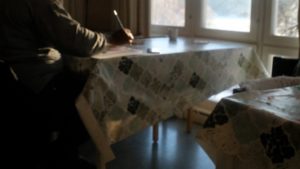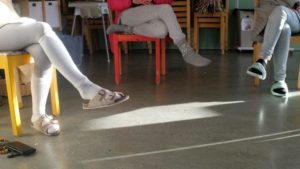By Polina Smiragina-Ingelström
“[They are] not ideal victims of crime, especially when not trafficked for other reasons than sexual, so the social services don’t want to deal with them, they can’t relate to their experience as being victimizing. […] not everyone feels or understands that they are victims.”
This concern was expressed by one of the direct service providers to victims of human trafficking in Sweden and echoed by many other anti-trafficking actors as well as victim participants of the study on Negotiating care, post-trafficking needs and gender in understanding help-seeking behaviour of trafficked victims.
Human trafficking (HT) is often sensationalized and exaggerated, portraying victims as vulnerable and as innocent as possible, exposing their horrific experiences of victimhood and highlighting the force, confinement and violence that are perceived to accompany this crime. Trafficking is not always tied in with force, restriction of freedom of movement or use of violent means. HT is a complex and very broadly defined crime that encompasses various forms of exploitation and victimizes individuals of different backgrounds, ages, and genders.
The master narrative has contributed to the lingering image of the young female victim of sexual exploitation, making sex trafficking a symbol of the trafficking experience, at the same time inflating the threshold of what constitutes HT victimization and limiting the understanding of the harms endured by victims and, by extension, the post-trafficking needs they may have.

In this study I am looking at how the gendered assumptions about the trafficking victim have shaped assistance mechanisms in Finland and Sweden and the implications this has on the nature of care services and the help-seeking behavior of trafficked victims.
Hindrances to seeking help are aligned across four broad categories: the source of victimization, predisposing characteristics (which involve demographic, social and cultural factors as well as well-being beliefs), enabling resources (such as post-trafficking assistance services for example), as well as how the post-trafficking needs are perceived by the victim and evaluated by professionals.
While it is important to note that Finland identifies and assists a rather substantial number of male victims (especially compared to Sweden), some aspects of post-trafficking assistance services in both Finland and Sweden are framed along gendered lines, as for example female victims may be placed in specialized shelters for trafficked victims and/or domestic abuse, whereas there are no specialized shelters for male victims, who are typically placed into homeless shelters. Moreover, female victims are often offered various avenues for emotional recovery through support groups, theatre and art. Male victims are typically not included in such initiatives.

While human trafficking is imagined in gendered terms, it was interesting to find that most of the direct service providers did not experience any difference in the way male and female victims seek help. Moreover, while a few research participants in both countries have expressed that help-seeking is more challenging for male victims, the majority found that asking for help is equally difficult for both genders.
Most of the identified barriers to seeking help were related to the very nature of the crime. It is not a novelty that human induced victimizations have a very distressing effect on the victims because of the intentional character of the crime. Furthermore, HT experiences are often accompanied by negative emotions that can have an adverse effect on the help-seeking behaviour of trafficked victims. The recurring responses of direct service providers as to why victims do not ask for or refuse post-trafficking assistance were related to fear, shame, lack of trust and self-blame. Another factor hindering access to assistance services is the dismissal of victim claims and/or justification of suffering of those trafficked victims who do not fit the social constructions of victimhood, such as victims who were compelled to commit crimes, who were imprisoned, who entered exploitative labour voluntarily or male victims. Typically, victims whose victimhood experience was not regarded harmful enough would also experience problems accessing post-trafficking care or seeking justice.

Polina Smiragina-Ingelström is a postdoctoral research fellow in criminology at Stockholm University. Polina is currently involved in a project that focuses on the help-seeking behavior of trafficked victims. She has been working with trafficking-related issues for over 10 years. Email: polina.smiragina@criminology.su.se
